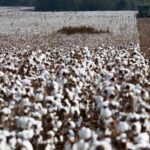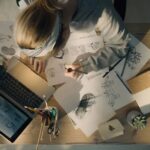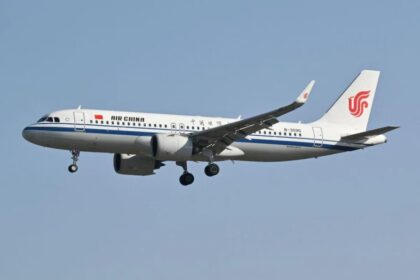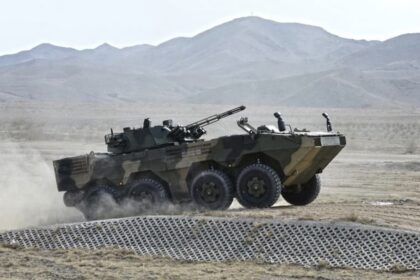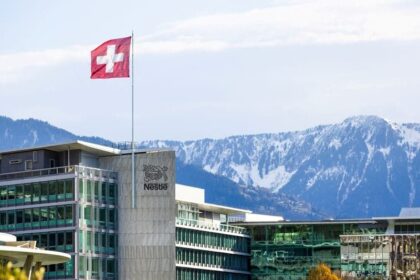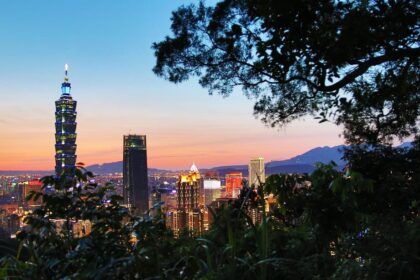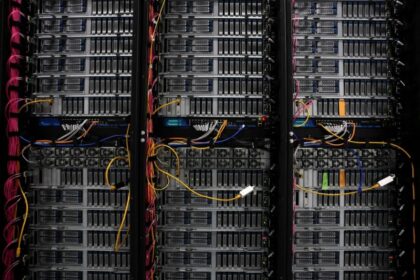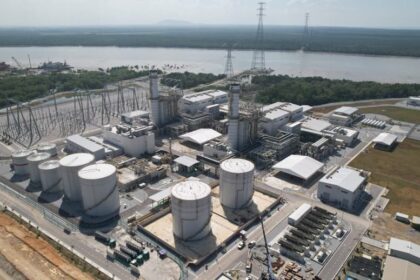How a new ranking splits expat and local costs
Singapore’s high cost of living is a familiar headline, yet a new analysis draws a sharper line between the experience of foreign professionals and residents. A study by researchers from the Lee Kuan Yew School of Public Policy compared 45 cities across Asia, Australasia, Europe and North America and found Singapore ranked fourth most expensive for expatriates in 2025, behind New York, Zurich and Los Angeles. For locals, the city placed 28th. The gap reflects different price drivers and how global forces feed into expat budgets more directly than into local household spending. Housing, transportation and international school fees weighed most on expat wallets, alongside exposure to global inflation and exchange rate swings.
- How a new ranking splits expat and local costs
- Why expats pay more in Singapore
- Housing, the biggest line item
- Transport and the cost of owning a car
- Education premium for expat families
- Day to day costs, from groceries to eating out
- How Singapore compares globally
- What expats can do to manage costs
- Policy signals and the 2025 outlook
- What to Know
Over time, Singapore’s position for expats has crept up within this study’s five year window. It placed sixth in 2021 and fifth from 2022 to 2024 before reaching fourth in 2025. For locals the city moved from 33rd in 2021 to 30th in 2022, 29th in 2023 and 28th in both 2024 and 2025. In Asia, Singapore topped the list for both expats and locals, with Hong Kong second in the region. The study also found that the top ten cities recorded the highest housing prices, indicating that property costs continue to set the tone for living expenses in global hubs.
Researchers highlighted the different mechanics at play. Expat living costs tend to move with global inflation and currency shifts. Local costs are influenced more by domestic policies and access to subsidies or public services. In Singapore’s case, the gap shows up in housing, transport and education. Expat households generally rent private condominiums, face the full price of car ownership and often pay international school fees. Many local families benefit from subsidized public housing, use public transport and rely on national school systems.
These results align with other global snapshots that frequently place Singapore at or near the top of cost of living tables. They also clarify why two people living in the same city can face very different cost realities. A finance executive relocating from Europe will see a price profile that looks more like New York or Zurich. A Singaporean family in public housing faces a very different cost curve.
Why expats pay more in Singapore
Three cost drivers stand out. The first is housing. The study found housing in Singapore was the sixth most expensive among 45 cities for expats, but only 23rd for locals. The reason is structural. Most expatriates rent in the open market, particularly condominiums with amenities. Local citizens and many permanent residents can buy or rent Housing and Development Board flats, which are subsidized and have moderated price growth over long periods. When rents jump, expats feel it immediately, while many local households are insulated by earlier purchase prices or access to public housing.
The second driver is mobility. Singapore’s public transport network is efficient and affordable, with per ride fares typically in the S$1 to S$3 range and monthly passes around S$120 according to crowd sourced tracking. Car ownership is a different story. The Certificate of Entitlement system (COE) limits the number of vehicles on the road by requiring buyers to secure a time limited certificate at auction. That fee sits on top of taxes and the price of the car, which pushes the all in cost to levels that deter most residents. Expats who choose cars face a significant outlay compared with peers in many other cities.
The third is schooling. International school fees are among the highest worldwide in Singapore. Families that opt for international curricula pay annual fees that rival tuition in other global cities. Local public schools offer high quality education, but places and fee structures vary for non residents, and many expat families choose the international route to keep children on a consistent academic track.
Housing, the biggest line item
Rents tell the story clearly. A one bedroom apartment in the city center averages about S$4,032 per month, according to current price trackers. Outside the center, a one bedroom averages about S$2,985. Guides aimed at newcomers put the range for a central one bedroom closer to S$2,500 to S$4,000 depending on building age and location, while a similar unit further out might be S$1,500 to S$2,500. In the core business districts, some expats report paying S$4,000 to S$6,000 for a one bedroom with newer amenities, particularly in premium towers.
Rents surged after the pandemic as construction delays collided with a quick return of foreign workers and strong local demand. Over roughly three years, the rental index rose by about 60 percent. That tide has started to ebb. Across the last four quarters the rental index softened by about 4 percent, with a small uptick in the most recent quarter, according to market reports cited by The Economic Times. A separate guide focused on the expat rental market estimates prices cooled by about 5 to 10 percent from peaks in 2024 and into 2025, with high end units in central areas showing more flexibility as vacancy rates rise.
The shift gives tenants more leverage, although it does not erase the sharp increases since 2020. Landlords face higher property taxes and borrowing costs and are reluctant to slash rents. Outcomes will depend on the number of new units entering the market and the flow of new arrivals. If fresh supply outpaces demand, that would cap further gains. If hiring in finance and technology accelerates again, competition for central units will tighten.
There is a wider menu of options than many first time arrivals realize. Foreigners can rent HDB flats subject to eligibility and neighborhood quotas. Co living residences with shared lounges and kitchens offer shorter leases and standardized costs. Typical private leases run one to two years, with security deposits of one to two months’ rent and a diplomatic clause in longer leases that allows early termination if a work assignment ends. Tenants usually pay stamp duty on leases, must handle minor repairs, and should document the unit condition carefully to avoid end of lease disputes. Reputable portals such as PropertyGuru and 99.co host most listings, and many expats choose to work with an agent who understands neighborhood trade offs.
Transport and the cost of owning a car
Getting around without a car is simple. The MRT subway and bus network covers the island well, and a monthly public transport pass is about S$120. Ride hailing services are widely available, and for those living centrally, monthly spending on rides can be modest compared with the cost of car ownership. Gasoline prices and parking add to car costs, and taxes are structured to discourage private car use. Numbeo’s price basket puts gasoline around S$10.67 per gallon and lists the monthly pass for public transport at S$120, which illustrates the scale of difference between a transit first lifestyle and driving.
The COE system is the key policy lever. It caps the vehicle population by requiring a certificate for each new registration, valid for a set number of years. COE prices move with demand and supply. When demand runs hot, the fee climbs, pushing the total cost of a car far above sticker prices seen in other countries. Many expats find that the speed and reach of the MRT and buses, along with occasional taxis, make car ownership unnecessary.
Education premium for expat families
Schooling can rival rent as a major cost for families. Numbeo’s benchmark for an international primary school in Singapore is about S$37,959 per year. Private insurers and relocation guides place the range from several thousand US dollars to around US$40,000 per year depending on the school and grade level. These figures exclude application fees, building funds, school transport and extracurricular programs, which can add thousands of dollars more.
Public education offers a high standard, but access and fees differ by status. Citizens and permanent residents pay subsidized rates. For foreigners, monthly fees are higher and places are limited. Many expat families choose international schools to maintain curriculum continuity during global moves. That choice delivers stability, yet it carries a price that heavily influences where a family can live and how much space they can afford.
Day to day costs, from groceries to eating out
Singapore offers wide price variety on food. Hawker centers serve local dishes for roughly S$5 to S$10 per meal, a value that anchors many household budgets. Dining at mid range restaurants can run about S$100 for two. A cappuccino averages a little over S$6, and a beer in a neighborhood pub is about S$10. Alcohol carries high taxes, which is why nights out can feel steep compared with meals at hawker stalls.
Grocery prices reflect the city’s reliance on imports. Recent price baskets show a dozen eggs around S$4.18, a loaf of bread around S$2.75, and about S$15 for a gallon of milk. Utilities for a typical apartment range from S$150 to S$300 per month depending on usage and size. Internet plans hover around S$45 to S$50 per month for fast connections. Premium gym memberships can be S$150 to S$200 monthly. Budget guides estimate a single expat might spend roughly S$3,500 to S$6,000 per month depending on housing choice, while crowd sourced indexes that include more premium options place a single person at over S$7,000. For a family of four, estimates range from S$6,000 to S$12,000 per month, and up to about S$11,000 in some expat price indices where housing assumptions skew larger. The spread underscores how decisions on home size, school, commute and leisure drive the final total.
Income and taxes help frame affordability. Numbeo reports an average monthly net salary near S$5,984. Personal income tax rates are low by global standards, from zero to 22 percent for residents, with non residents taxed at 15 percent or at progressive rates, whichever yields more. Lower taxes ease the burden on high earners, which is one reason global firms remain comfortable using Singapore as a regional base.
How Singapore compares globally
In the Lee Kuan Yew School study, most of the costliest cities for expatriates were in North America and Western Europe, with Singapore and Hong Kong the main Asian exceptions. Within Asia alone, Singapore ranked as the most expensive city for both expats and locals in 2025. Hong Kong followed in second place in the region. The study tracked these movements from 2021 to 2025 and found the top ten cities also recorded the highest housing prices, reinforcing the central role of real estate.
Other global surveys paint a consistent picture. Cost of living indexes from major research firms often place Singapore at or near the top worldwide, citing limited land, high car ownership costs, and strong demand for centrally located homes. Consumer facing roundups routinely list Singapore alongside Zurich, Geneva, New York, Hong Kong, London and Los Angeles.
At a country level, affordability rankings reflect the contrast within Asia. The InterNations Expat Insider 2025 study places Vietnam at the most affordable end of the spectrum, with Thailand, Indonesia, the Philippines and Malaysia also rated highly for personal finances. The same study shows Singapore among the least affordable countries for expats, consistent with the city’s premium price profile. That is why some professionals who want a regional base with a lighter cost footprint consider cities like Kuala Lumpur or Bangkok, while others choose Singapore for infrastructure, safety and career reach despite higher costs.
What expats can do to manage costs
Expats have more levers to pull than the headline rankings suggest. The biggest savings come from housing choices, transport habits and school decisions. The following tactics consistently show up in expat budgets that stretch further without sacrificing too much convenience.
Renting smart
Explore neighborhoods beyond the central business districts. Fringe areas on the MRT network can cut rent by hundreds or even thousands per month compared with prime towers. Consider HDB rentals if eligibility and quotas permit. Many HDB neighborhoods sit steps from train lines and markets, and the savings can be significant. Ask for a diplomatic clause on leases longer than a year so you can exit early if an assignment ends. Budget for two months of security deposit on longer leases, stamp duty, and minor repair obligations. Document the unit condition with photos at check in. Use trusted portals such as PropertyGuru or 99.co, and work with licensed agents.
Transport choices
Plan for a transit first lifestyle. A monthly pass around S$120 covers frequent MRT and bus use and compares favorably with the cost of driving. Combine transit with occasional taxis or ride hailing. If you live and work centrally, many daily trips can be on foot. Avoid owning a car unless there is a clear family need, since the COE system and taxes raise the total cost far above other cities.
Family budget
For families, school selection drives the budget. International schools vary widely in fees, application charges and extras such as bus services. Visit multiple campuses and request all in fee schedules before committing. Consider employer education allowances, which remain common in some industries. Health insurance is another line to protect. Private coverage that matches your needs can reduce surprises, since out of pocket costs for foreign residents can be high without coverage. Day to day spending adds up, so lean on hawker centers for value, shop promotions at supermarkets, and use online marketplaces for household items. Mobile plans and home internet are relatively affordable by global standards, which helps trim recurring costs.
Policy signals and the 2025 outlook
The rental market has shifted from the acute tightness of 2022 and 2023 toward a more balanced position. New supply has arrived, vacancy rates have edged up, and tenants are gaining confidence in negotiations. Market watchers cited by The Economic Times say deep rent cuts are unlikely absent a surge in available units. Landlords still face higher taxes and interest costs. Employment growth patterns will matter too. If demand tilts away from higher paid roles that typically rent mid and upper tier condos, then negotiating power may remain with tenants for longer.
Global conditions will continue to ripple through expat budgets. Exchange rates can lift or cut purchasing power in Singapore overnight. Inflation in trade partners affects the price of imports from food to household goods. Domestic policies on housing and transport will keep shaping the local price structure. For now, price pressures look more manageable than in the recent past, yet Singapore remains a premium city by any global benchmark. The new ranking between expats and locals shows that price levels are not uniform, and the difference often comes down to which systems you are plugged into and which choices you make.
What to Know
- Singapore ranked fourth most expensive city for expats and 28th for locals in a 2025 study of 45 cities by researchers from the Lee Kuan Yew School of Public Policy.
- Housing is the key driver of the gap, ranking sixth for expats and 23rd for locals. Locals benefit from access to public housing while expats rely on private rentals.
- Transport and education add to expat costs. Public transit is affordable, but car ownership is costly due to the COE system. International school fees are among the world’s highest.
- Rents surged about 60 percent over three years, then softened by about 4 percent over the last four quarters. Tenants have gained negotiating power in 2025, with high end condos more flexible.
- Typical central one bedroom rents span roughly S$2,500 to S$4,000 and beyond, with CBD units often S$4,000 to S$6,000. Outside the center, one bedrooms average about S$2,985.
- Everyday prices vary. Hawker meals cost S$5 to S$10, a meal for two in a restaurant about S$100, and a monthly transit pass around S$120. Utilities usually run S$150 to S$300 per month.
- Average net salary is about S$5,984 per month, and personal income taxes are low by global standards, capped at 22 percent for residents.
- Other surveys often place Singapore near the top globally for cost of living, while country level rankings show Southeast Asian neighbors like Vietnam and Thailand as more affordable for expats.



